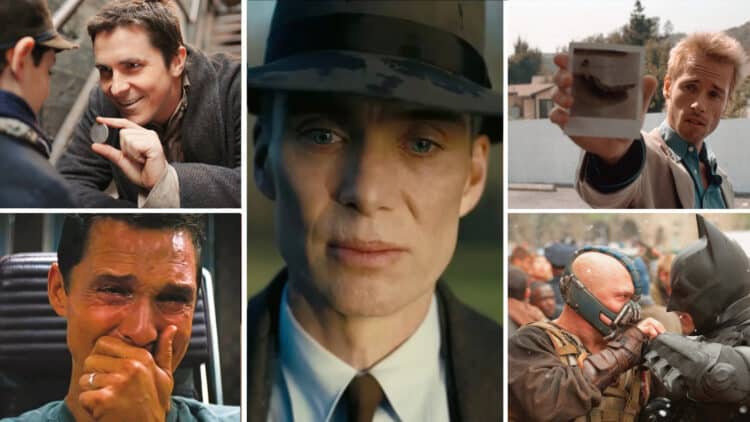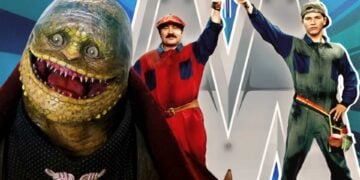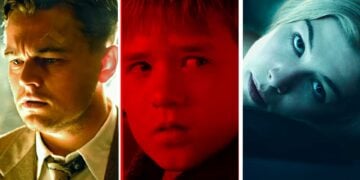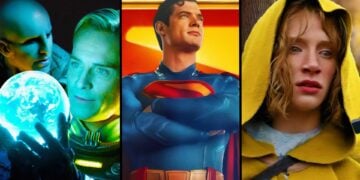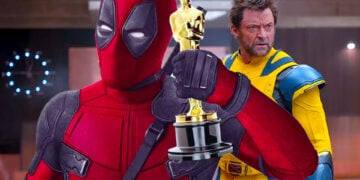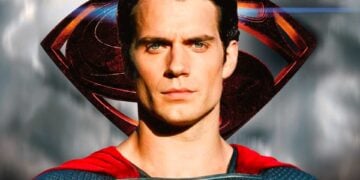Acclaimed director Christopher Nolan is one of cinema’s greatest and most respected filmmakers. The British-American auteur is known for his time-bending escapades, such as Memento and Tenet, and his groundbreaking work in the comic book film genre with The Dark Knight Trilogy. Nolan infuses his films with layers of meaning with complex plot twists and turns that demand nothing but the highest level of mental application from audiences. His zeal and balls-to-the-wall dedication to his vision have seen him garner a rabid and loyal following of cinephiles. The director pushes the envelope, challenging viewers with dense and fascinating stories while also being uncompromising with the technical aspects of filmmaking, preferring practical effects over CGI and using IMAX cameras to create beautiful photography that immerses the viewer in the action. Nolan’s passion for storytelling and crusade to uphold the highest filmmaking standards have made him a notable figure in the industry.
Nolan’s unique brand of movie-making has made him as famous as any actor or celebrity. He stands out because he can tell stories that take the audience for a loop, unsettling our preconceived notions and entertaining us at the same time. These key features have made him one of his generation’s greatest directors and secured his legacy as a trailblazer and an iconic director and screenwriter. In celebration of his remarkable contribution to cinema, let’s take a tour of his filmography and rank Christopher Nolan’s movies from the worst to the best.
12. Following (1998)
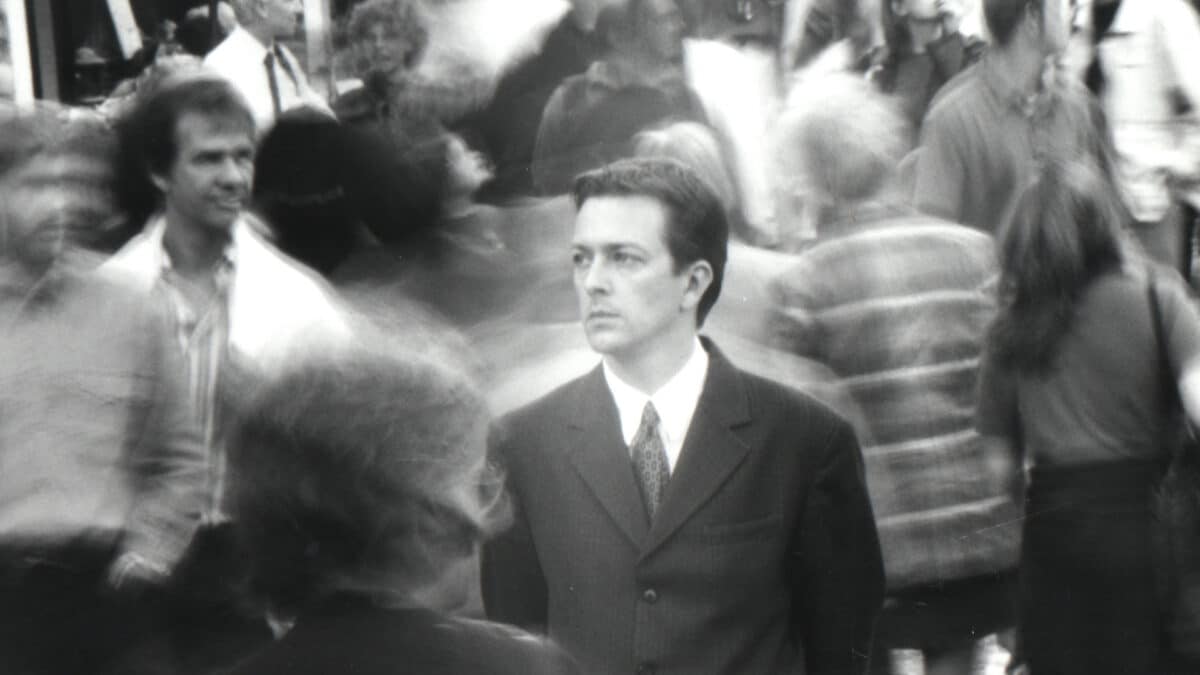
Nolan’s impressive debut, Following, has all the elements that would feature in the director’s future films, mainly Nolan’s distortion of time and non-linear chronology, crucial aspects of the film. Jeremy Theobald stars as the ‘Young Man’, a struggling writer living in London who becomes obsessed with following random strangers. He follows a small-time burglar called Cobb (Alex Haw), who shows him how to break into people’s homes, not for material gain, but for the burglary to shock them into re-examining their lives, so he claims.
Following is a neo-noir crime thriller that explores the isolation and loneliness of urban life. The film is unique in that it leans into the noir genre but adds a psychological element. The characters explore the dynamics of social interaction in a sprawling city where you are just a number, a stranger adrift in a sea of people. The ‘Young Man’ becomes addicted to uncovering the personal lives of strangers because of his desire to connect with people but in a twisted and perverted manner that sees him invade the privacy of others, forcing a connection with strangers.
Following is a fine debut film that is a masterclass in filmmaking with a shoestring budget. Nolan only had $6000 of his money to shoot and edit the film. Despite the small budget, Nolan’s creativity was in no way stifled. He manages to weave together so many disparate themes and genres that it makes Following a mini-classic.
11. Insomnia (2002)
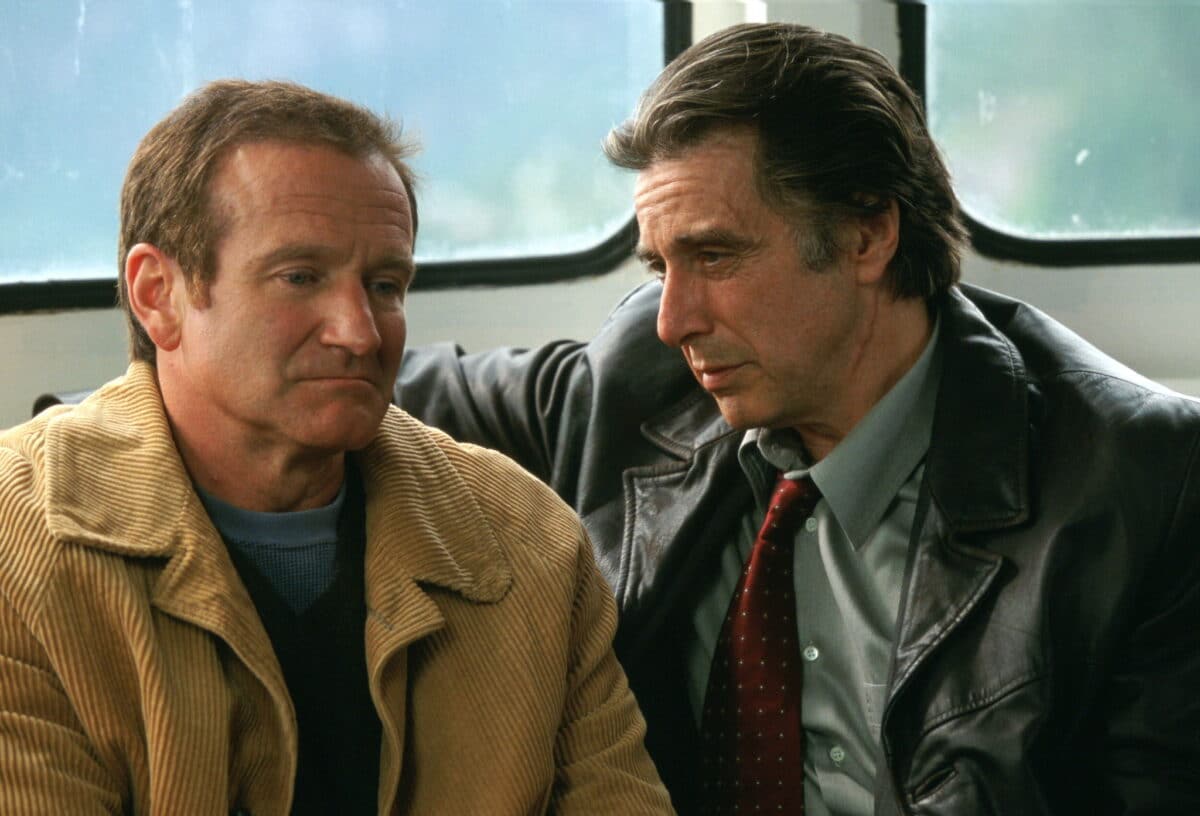
Following allowed Nolan to make Memento, and the film’s success opened the doors to Hollywood’s who’s who. Warner Bros. noticed Nolan’s talent and offered the up-and-coming director the chance to helm his first big-budget studio film. Starring heavyweights like Al Pacino and Robin Williams, Insomnia is a taut psychological thriller.
Pacino stars as Los Angeles detective Will Dormer, who is sent to Alaska to investigate the murder of a young girl. A local, Walter Finch (Williams), is the main suspect in the murder case but evades Dormer’s attempts to tie him to the crime. Williams gives a stellar portrayal as a psychopathic killer, and Pacino is excellent with his frayed, paranoid performance.
Nolan is one of the few directors who regularly writes or co-writes his films, but this Norwegian remake is the only film in his canon in which he does not have a writing credit. He doesn’t interfere with the story all that much and allows the film to be as mainstream as possible, lacking the signature elements in Christopher Nolan’s other movies. Overall, Insomnia is an excellent film, deserving of its place on the list of best Christopher Nolan movies, and featuring a great cast and an exciting dive into paranoia, guilt and their effects on the human psyche.
10. Dunkirk (2017)
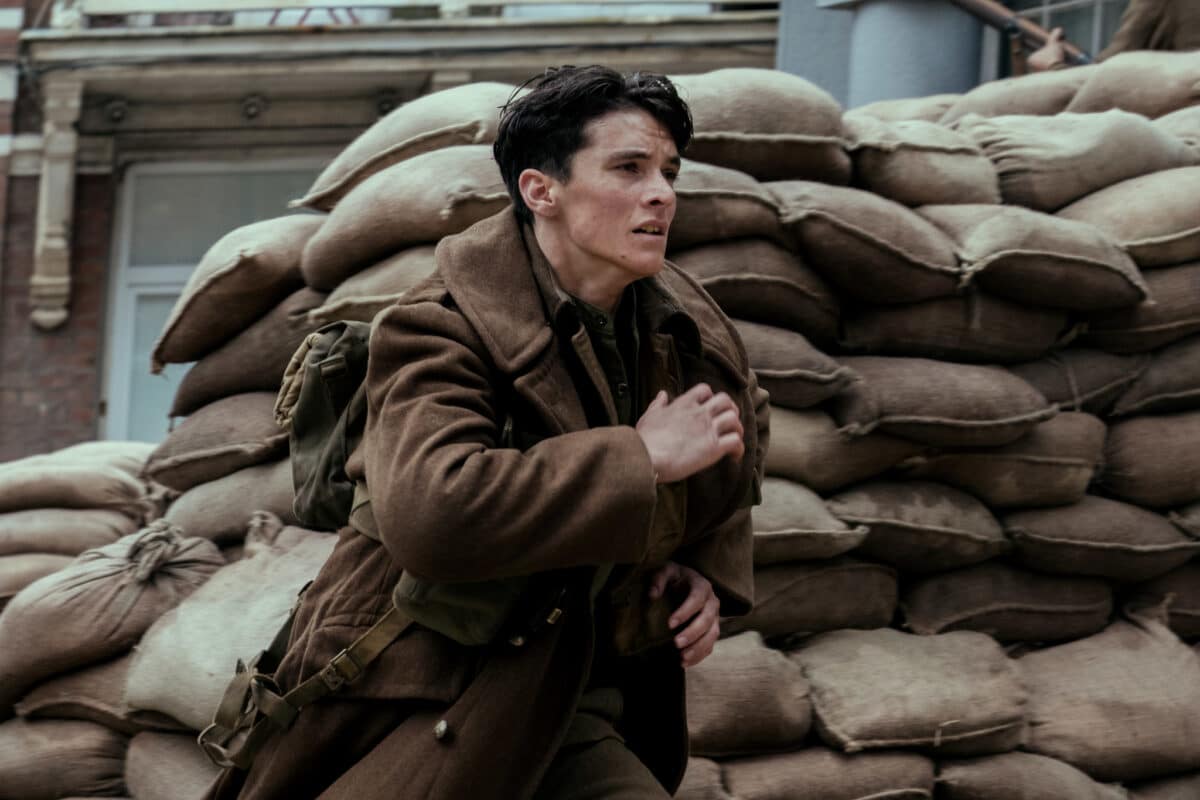
With each film, Nolan becomes more adventurous in his storytelling. He branches out further, never retreading the same genre, style or themes. Each of his films has familiar stylistic elements to a greater or lesser degree and shares similar narrative qualities that bind all of Nolan’s work together. Still, he always relies on different formulas. In Dunkirk, Nolan uses the war drama as a platform to tell a story of survival and resilience.
Allied soldiers are stranded on France’s Dunkirk shoreline, waiting to be evacuated. The film has minimal dialogue and uses cinematography and music to create suspense. Tension increases when Tommy ( Fionn Whitehead) and his fellow soldiers have to escape the enemy fire and a barrage of attacks from the air, land and sea.
Critics called Dunkirk one of the best war dramas ever made. The film’s cinematography, editing and score were impeccable and highly praised. The movie doesn’t sensationalise the horror of war, avoiding the bloodiness and carnage so often depicted in traditional war movies. Instead, Nolan emphasises survival over horror and uses an unusual timeline structure that tells three distinct stories which connect wonderfully.
9. Batman Begins (2005)
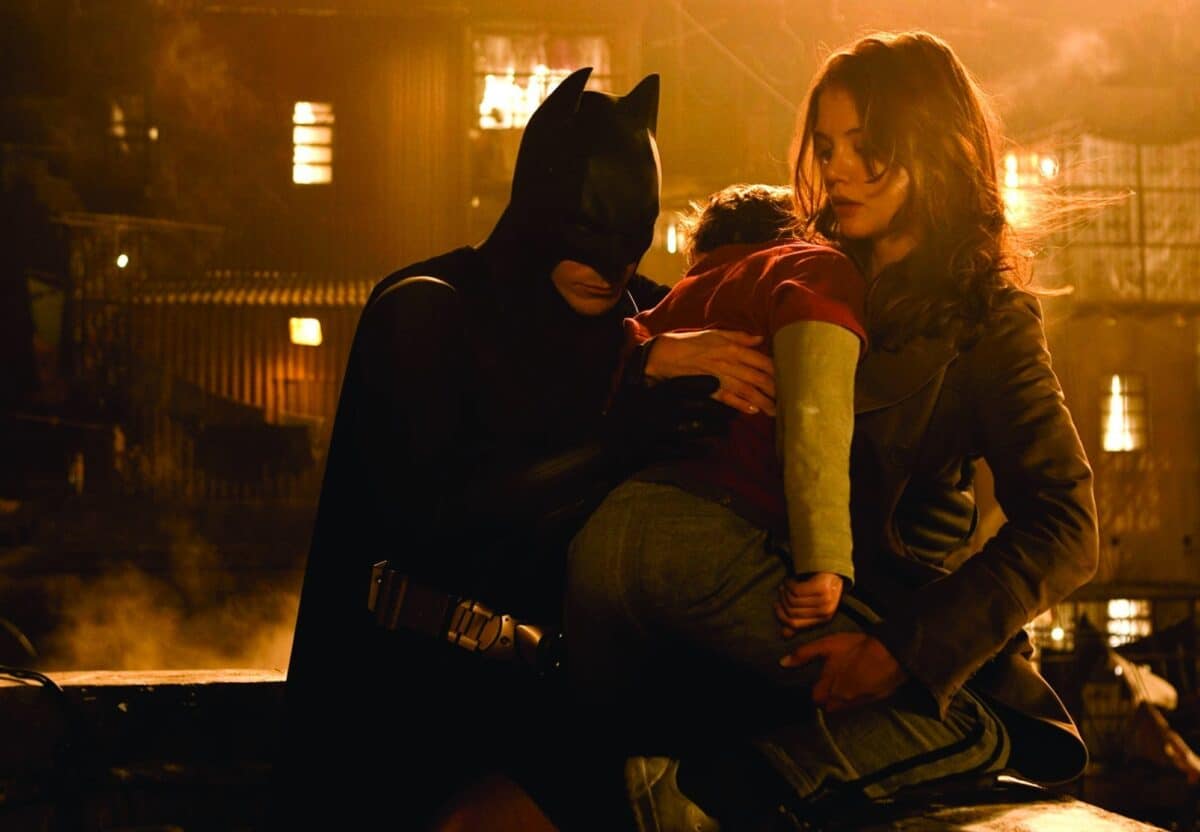
Nolan has always been meticulous in his choice of films. He started directing indie classics like Memento, which led to Insomnia, which proved he could handle the pressure and responsibility of directing a big-budget film. With his reputation secure, Nolan pitched his version of a Batman reboot to Warner Bros, who trusted the aspiring auteur to take charge of revamping one of their most important properties.
Before Nolan, Batman was in a poor state. The brand was damaged due to lacklustre releases like Batman and Robin and, to a lesser extent, Batman Forever. Instead of telling a compelling story, these films were overly camp and satirised the genre. Nolan saw a dramatic and tragic figure in Batman that could become a flesh-and-blood character audiences could connect with. Previous films tended to avoid Bruce’s psychology and the events that shaped his worldview; these were only superficially alluded to even in Burton’s films.
David S. Goyer and Nolan’s script delved deeper into Bruce’s personal life and showed viewers the fear and trauma which shaped Batman’s psychology. The film shed the campy elements of previous films and grounded the characters in a realistic world draped in grit and shadows. Never before had we seen such a depiction of the Caped Crusader; fans went berzerk for the movie and felt that after waiting for so many years, we finally had the Batman we had been waiting for.
8. Oppenheimer (2023)
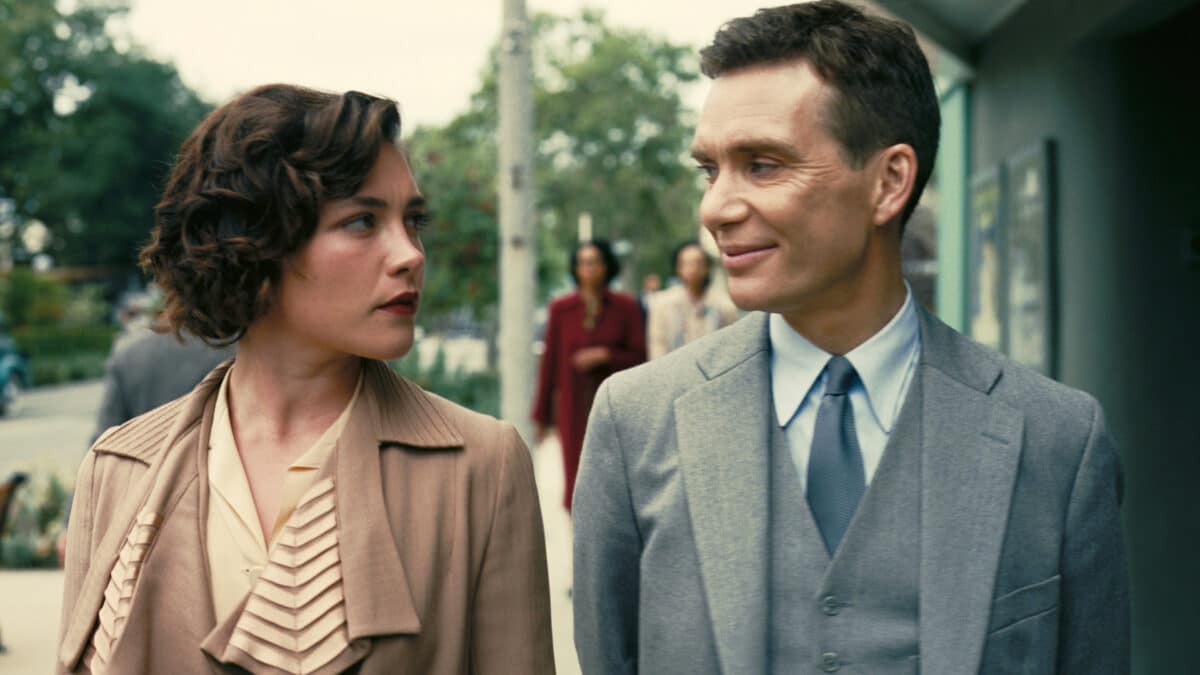
Some fans would think it’s too low on this list, but let’s not get too hasty. Oppenheimer is eyeing an Oscar for Best Film at the 2024 Academy Awards. Hopefully, it will claim the prize, and hopefully, Nolan will finally win the award for Best Director, which has evaded him despite a chorus of followers who have been championing the director to receive the prestigious award on numerous occasions.
Oppenheimer is based on the Pulitzer Prize-winning biography American Prometheus: The Triumph and Tragedy of J. Robert Oppenheimer. Nolan was inspired to make the film during the making of Tenet when Robert Pattinson gifted a book on Oppenheimer’s speeches to the director at the film’s wrap party.
Oppenheimer is Nolan at his most ambitious. The cast, notably Robert Downey Jr., noted that although the film tackles significant issues like nuclear war, the actual making of the film felt like a small art house movie because of how fast and precisely Nolan shoots his scenes. The ambition for the film is in the subject matter; the story of Oppenheimer is a stark and challenging topic that anyone should approach with trepidation.
Nolan’s foray into Oppenheimer’s mind and actions, as well as his visualisation of the making of the first nuclear bomb, could have crumbled in another’s hands. The incredible cast and the tight editing make Oppenheimer’s story a fascinating document of an incredible period of history. A three-hour film can be a slog, and some accuse Oppenheimer of being boring, but for many others, those three hours flew by. As a character study of Oppenheimer, this film succeeds on all fronts while also giving us a feast of visual pleasure and Cillian Murphy a chance to finally show the world what a marvellous actor he is.
7. Tenet (2020)
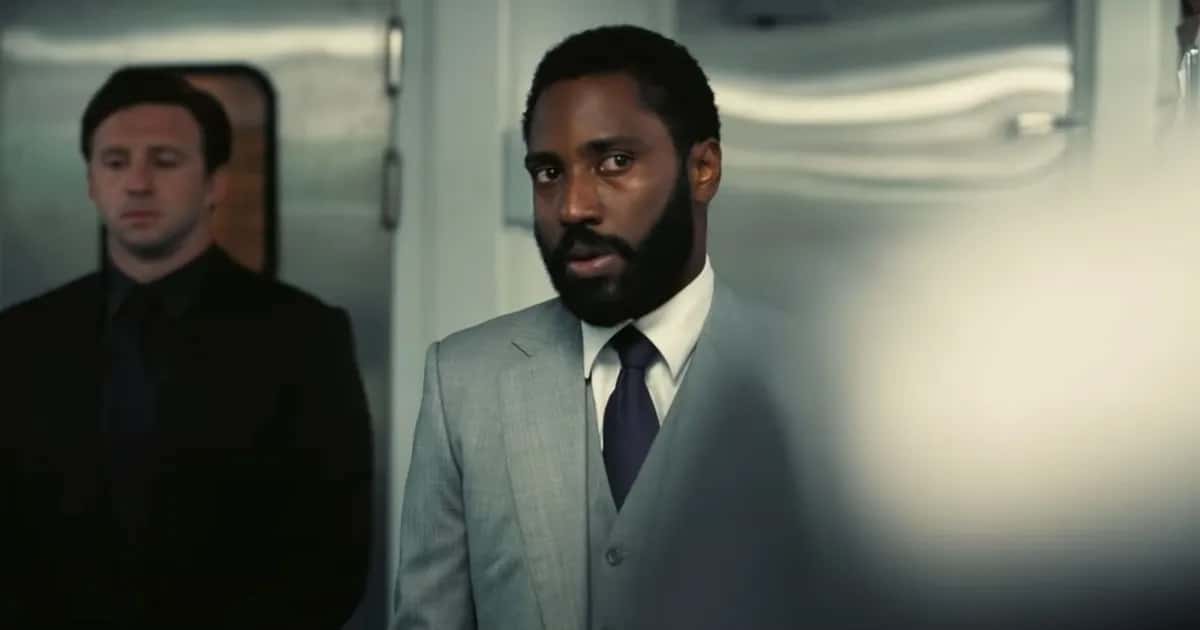
Tenet is Nolan’s most misunderstood film. Many filmgoers have tarnished it, accusing it of being too convoluted and confusing. It’s too cerebral and dense for some tastes. John David Washington stars as the nameless Protagonist, a CIA operative recruited into a secret organisation fighting to save the present, which is under attack from those in the future.
Tenet features one of the most confusing and difficult-to-follow plots in movie history. The time-altering story, which sees characters moving backwards and forwards in time, hurts your brain as you attempt to decipher everything. Nolan throws a curveball with Tenet, which keeps curving the more you watch the film. Aware of the film’s confusing plot, Nolan instead wanted viewers to relinquish their expectations and experience the film on an emotional level first and on an intellectual level second.
The movie’s standout themes and emotional resonance jump out more when you accept the premise and enter the drama and action with an open mind. Buried underneath the spectacle and time manipulation lies a story about a Kat (Elizabeth Debicki) who wants to escape the clutches of her tyrannical husband, Sator (Kenneth Branagh) and find freedom with her young son. Nolan places this touching story within the film’s heart and cloaks it in a genre-bending dive that evokes spy thrillers like James Bond but adds a science fiction angle that pushes the movie into fresh territory.
John David Washington is a class act and plays the role of spy and hero with panache and heart, neither stoic nor over the top. Pattinson also delivers some of his best work under the adept hands of Nolan, who takes viewers on an escapade unlike they have ever experienced before.
6. The Dark Knight Rises (2012)
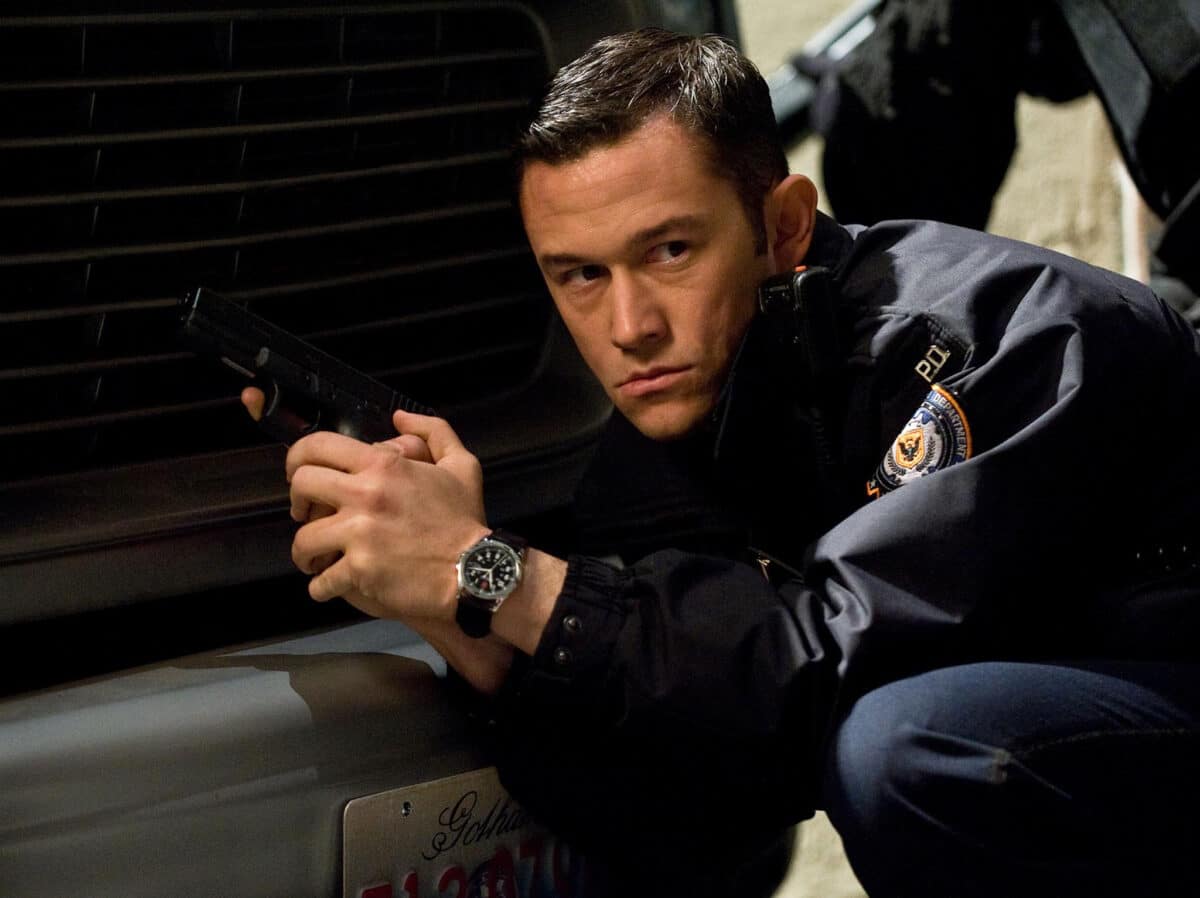
The Dark Knight trilogy changed the game, and, like Superman: The Movie in the 1970s, Nolan’s films elevated the comic book genre to a higher level of esteem and respect. In The Dark Knight Rises, Bruce is retired while he mourns the loss of Rachel. Crime is contained, and the city no longer needs Batman. A new threat enters the scene in Bane: a terrorist threatening to destroy Gotham as punishment for its decadence and corruption (for Talia, though, it’s all revenge, baby).
After The Dark Knight, Nolan had a challenging task. Nolan wanted his trilogy to have a satisfactory conclusion, and for inspiration, he looked to Charles Dickens and his novel A Tale of Two Cities, about the French Revolution. The director was aware that third films in a trilogy are often of inferior quality, with most not living up to the other films. Nolan said that he also looked to third films like Rocky III for inspiration. Bruce’s defeat at the hands of Bane mirrors Rocky’s defeat by Clubber Lang; like Rocky, Bruce has to rise above himself and defeat his opponent, who seems overwhelming and undefeatable.
Knowing the hardships of making a successful third film, Nolan changed the genre for The Dark Knight Rises, pivoting from the heist genre in The Dark Knight to the historical epic and the disaster epic in The Dark Knight Rises. The Joker was such an imposing figure in the second film, with Heath Ledger turning in an iconic performance that it would have been impossible to match if the film’s creative team had attempted something similar. Instead of Joker’s unhinged persona, The Dark Kight Rises features the methodical battle-hardened warrior, Bane, with Tom Hardy giving an excellent portrayal of the anarchist and warlord.
5. Inception (2010)
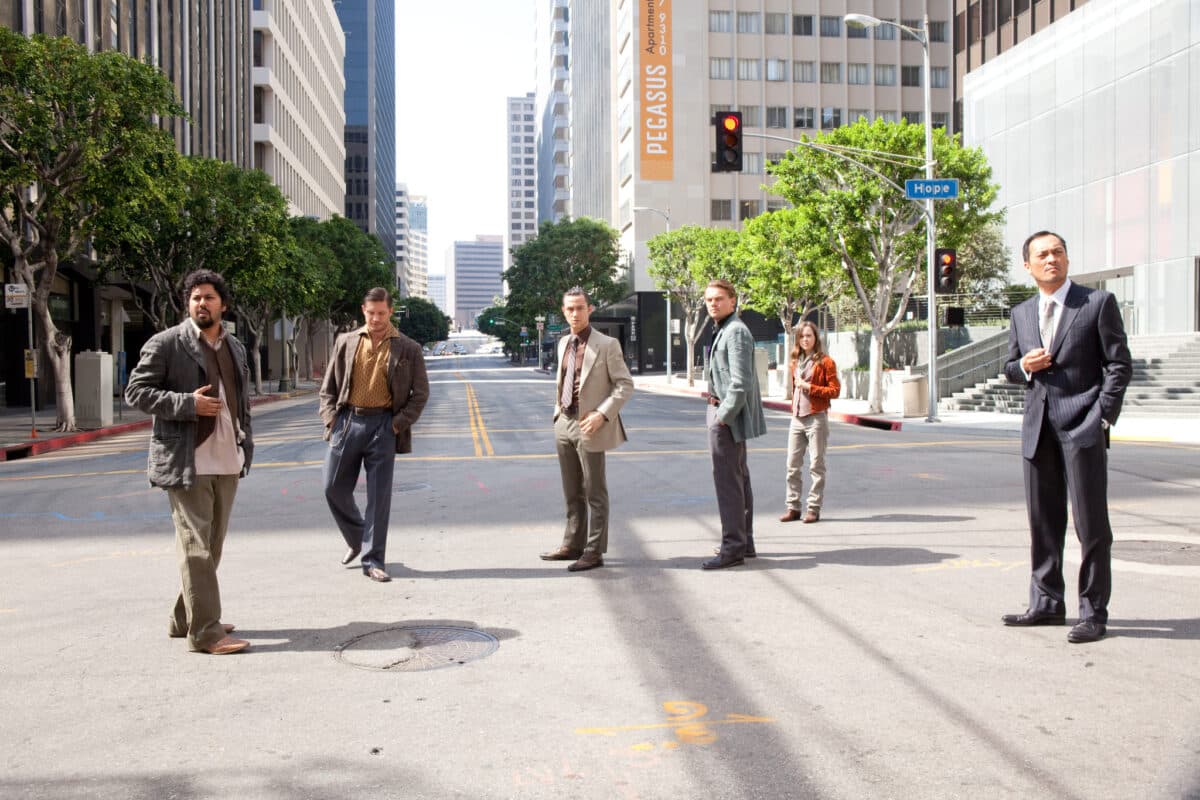
We’re now past the halfway mark and dealing with the crème de la crème of the best Christopher Nolan movies. From here on out, it gets fascinating. Like Tenet, Nolan’s love of James Bond and the spy genre adorns much of Inception. The film’s dream heist premise and Dom’s (Leonard DiCaprio) jet setting across the globe are homages to the Bond films Nolan enjoyed as a child.
Sandwiched between the release of The Dark Knight and The Dark Knight Rises, Inception was a film spawned from Nolan’s fascination with dreams and the altered reality they create. Nolan threads his love of dreams and weaves a tapestry that tells the story of Dom, who punishes himself for the guilt he feels, thinking he was the cause of his wife’s death. Dom infiltrates the dreams of others and extracts information of value to the highest bidder; the opposite is called inception, where an idea is placed in your mind.
Inception has elements of the heist genre, but Nolan wanted to infuse his film with emotion, which he felt was lacking in most heist movies. Dom’s desire to be reunited with his children and the turmoil he felt over his wife’s death was the spark of emotion his film needed to make it a smashing success, mixing science fiction, drama and action. Inception features fantastic visual effects like Paris folding on itself and the rotating hallway fight sequence with Gordon Levitt, one of the most incredible action scenes put to film. Still, Dom’s agony and guilt, as well as his desire to be reunited with his kids, give the film its beauty.
4. The Dark Knight (2008)
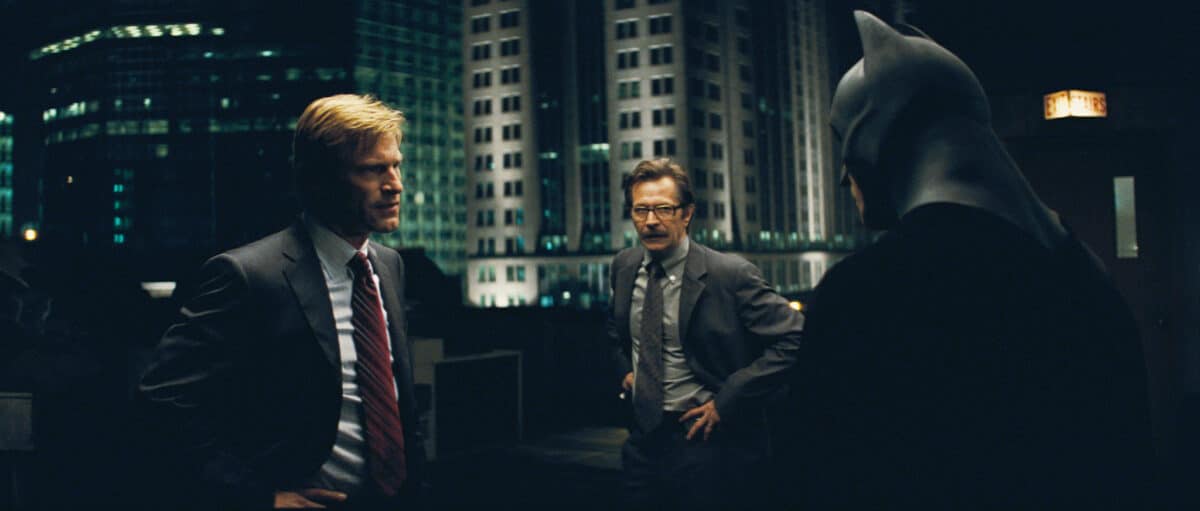
Many fans see The Dark Knight as the top comic book movie. It was the first such film to reach a billion dollars at the box office and rewrote the rule book for comic book films. Nolan laid the groundwork for The Dark Knight with Batman Begins. Still, the director expanded his vision by adapting the film to crime thrillers like Michael Mann’s Heat, with Nolan fusing the crime elements of heist films with psychological thriller motifs, exemplified by Heath Ledger’s performance as Joker, who terrorises Gotham while toying with Batman by getting deep into his head and unsettling him.
Like the previous film in the trilogy, The Dark Knight envisions a realistic and murky world. Gotham is not an exaggerated, fantastical landscape but looks like an actual place in the real world. This realism takes the viewer on a journey filled with great action, ever-increasing menace, and suspense as we follow Joker and his ever-more brazen attempts to thwart Batman.
Joker pushes Batman to his limits and makes him question what justice means or whether the people he protects are worth saving. The Dark Knight is a fusion of emotion, drama, and spectacular action brought to life by an exceptional cast. The film still offers riveting viewing, even after over a decade, and has become the undisputed standard for comic book movies.
3. Memento (2000)
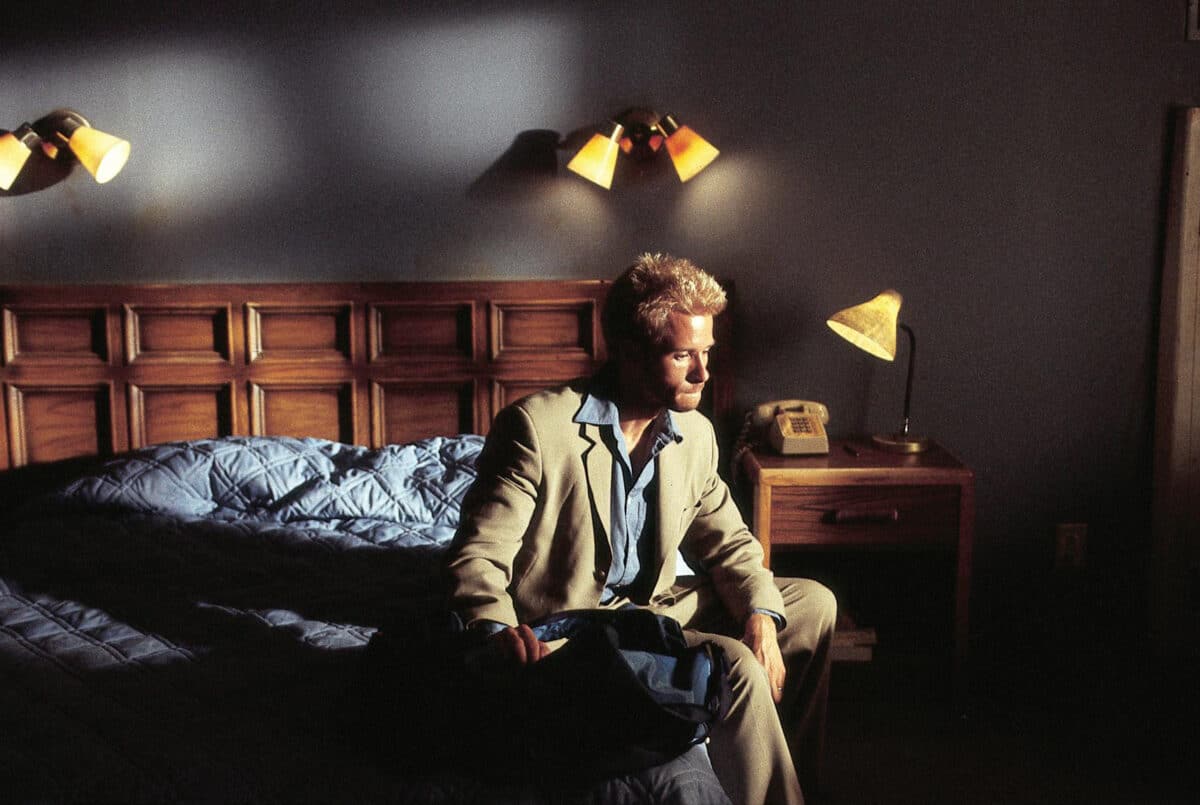
Despite the director having made billion-dollar movies, Memento, a small indie film, will always be seen as the film that launched Nolan’s stellar career. Guy Pierce stars as former insurance investigator Leonard Shelby, who is searching for his wife’s killer. Shelby suffers from anterograde amnesia and, as a result, cannot create new memories. He only has his older memories, so he has to create a complicated system to recall names, faces, phone numbers and places.
Despite his impaired condition, Shelby sets off to catch one of his wife’s killers, who is also one of the men responsible for Shelby’s amnesia due to being severely beaten. Memento’s non-linear narrative blew people’s minds. Although tricky to follow the plot, the film was a marvellous neo-noir crime thriller that showcased the notable talent of Guy Pierce, who, as Leonard, shows us a man, untethered by the norms of society, driven by revenge for an injustice that has torn his life apart.
Nolan places the viewer inside Shelby’s fractured mind by fracturing our sense of time, removing typical linear storytelling cues. Viewers are disorientated and unable to access at which point of the story they are, similar to Shelby’s inability to construct meaning from the ordinary flow of time, which is aided by our memories. Memento is riveting and revolutionised storytelling and the conventions that underpin filmmaking.
2. The Prestige (2006)
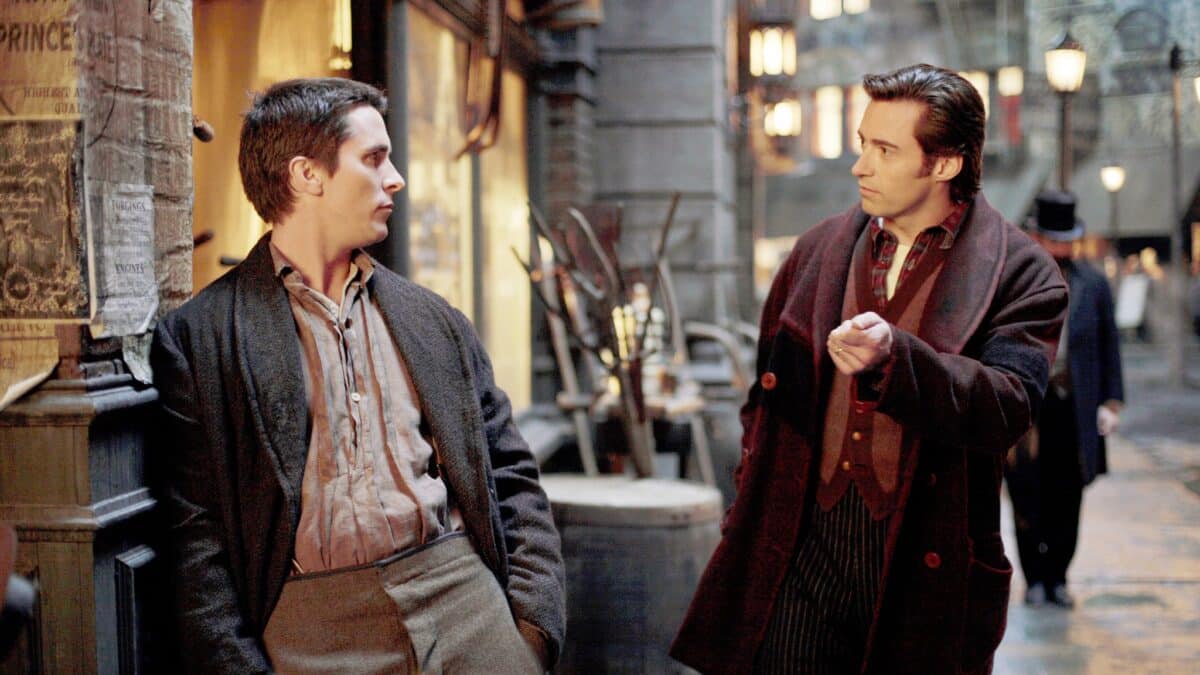
After the success of Batman Begins, Nolan had enough clout with Warner to adapt Christopher Priest’s novel. The Prestige has all of the fantastic elements we love about Nolan, from non-linear time sequences to brilliant twists and turns, which, like magic, leave you spellbound, unable to believe your eyes. Christian Bale (Alfred “The Professor” Borden) and Hugh Jackman (Robert “The Great Danton” Angier) are terrific as rival magicians in 19th-century London.
Angier holds bitter resentment against Borden, whom he accuses of causing the death of Angier’s wife during a magic trick. The film is crafted with exceptional attention to detail, drifting seamlessly between science fiction and drama as we watch these two magicians attempt to uncover each other’s secrets. Angier’s quest for revenge drives him into madness, and their rivalry is intense and fascinating.
The film’s brilliance is in using the formula used for magic tricks, the pledge, the turn and the prestige, and crafting the story with these same categories. Just as Angier scrambles to decipher Borden’s tricks, so too do we, as viewers, scramble to understand why Borden was able to perform his transporting man trick.
These and other elements mirror the experience the characters have with the experience of the audience. The film also has tragedy and heartfelt emotion at its core and leaves you groping for answers once the credits roll. Like many of Nolan’s films, The Prestige requires multiple viewings to grasp the plot and all its intricate twists and turns, themes and hidden meanings. Viewing The Prestige is to savour filmmaking at its finest.
1. Interstellar (2014)
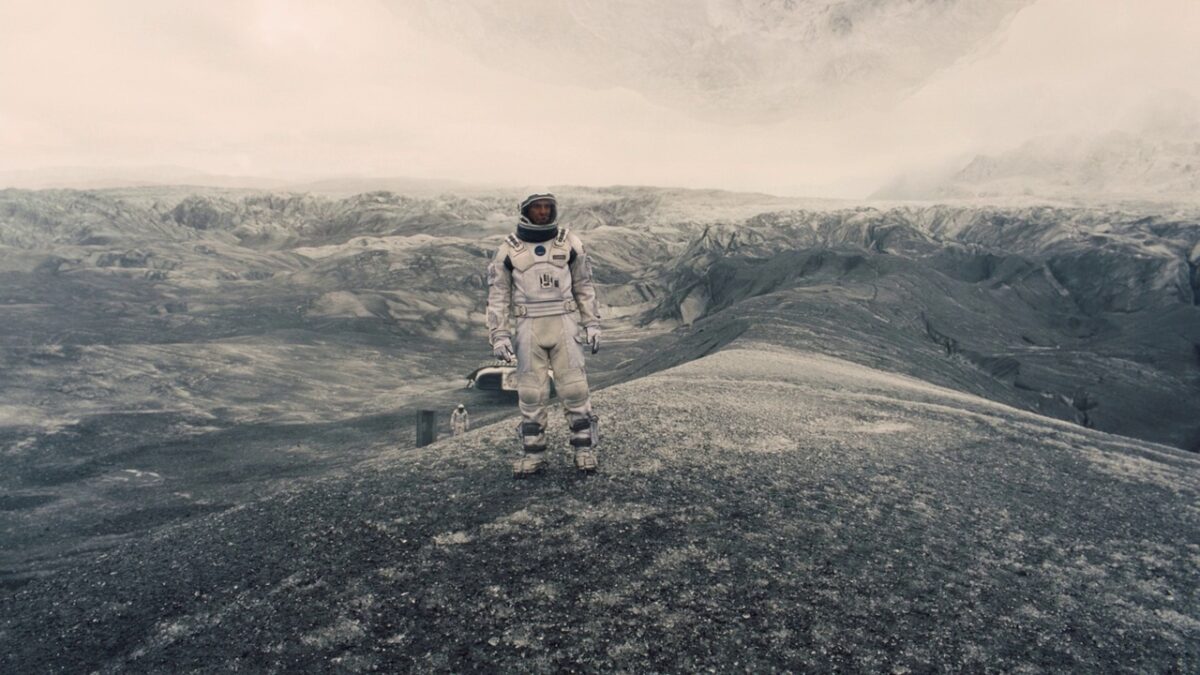
Each new Christopher Nolan film is met with excitement and the pleasure of figuring out what the director will do next and which genre he will explore. After the monolithic success of The Dark Knight trilogy, Nolan set his sights on the stars, crafting an epic sci-fi space drama. Interstellar, which tops this list of the best Christopher Nolan movies, tells the story of Joseph Cooper (Matthew McConaughey), a former NASA pilot turned farmer who has to save our species by finding us a new home in a distant galaxy after the Earth suffers from severe blight and crop failure.
Written by Chris and his brother Jonathan Nolan, Interstellar is one of the greatest science fiction dramas ever. The story is filled with emotion, so much so that many shed copious tears when watching the film. Cooper’s unwavering love and devotion to his children push him to the limits of human perseverance. We follow him and his crew as they enter wormholes, explore distant planets, and see them face the agony and despair of losing loved ones and experiencing the treachery and valour within the human heart.
The film’s genius is in blending epic, larger-than-life science fiction with weighty human drama while also exploring themes of love, sacrifice and perseverance. The story is told using spectacular visuals and cinematography that left viewers in awe as they followed Cooper into a black hole, as his connection and love with his daughter was the key to saving humanity and lifting us off planet Earth to discover a new home amongst the stars.
RELATED: Oppenheimer Is Actually About Christopher Nolan
What do you think? Is this list of the best Christopher Nolan movies accurate? Which film should be number one, in your opinion?

